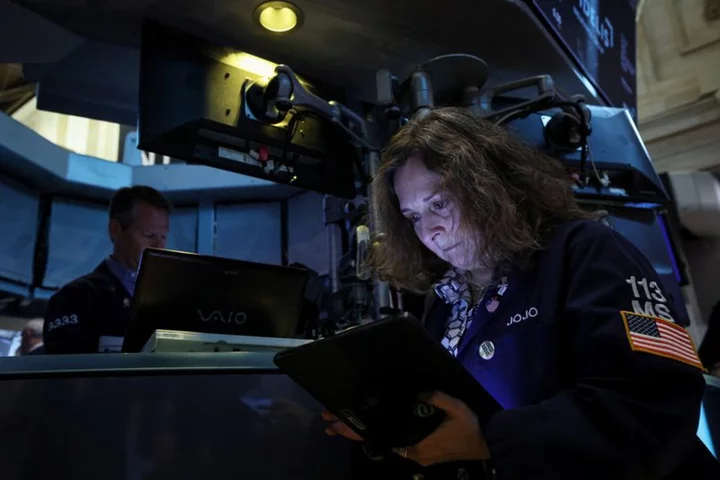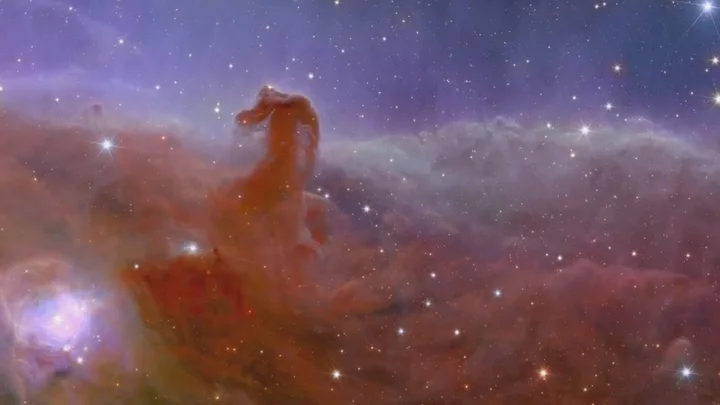
Brazil to maintain target of zero fiscal deficit in 2024
BRASILIA Brazil's Institutional Relations Minister Alexandre Padilha said on Thursday there will be no initiative from the government
2023-11-17 01:21

Three things Barcelona need to work on during the international break
What Barcelona must do during the 2023 November international break to improve.
2023-11-17 01:20

Chile lithium miner SQM builds inventories as prices slide
SQM, the world's second-largest lithium producer, said on Thursday it is building its lithium inventories as it continues
2023-11-17 00:54

US sanctions maritime companies, vessels for shipping oil above Russian price cap
By Daphne Psaledakis and Laura Sanicola WASHINGTON (Reuters) -The U.S. on Thursday imposed sanctions on maritime companies and vessels for
2023-11-17 00:50

3M names new healthcare spinoff as Solventum
3M's independent healthcare business will be called Solventum following its spin off, the company said on Thursday. (Reporting
2023-11-17 00:49

Eduardo Camavinga forced to withdraw from France squad through injury
Real Madrid midfielder Eduardo Camavinga has withdrawn from international duty after suffering an injury during France training on Wednesday.
2023-11-17 00:26

UAW ratifies labor deal with General Motors
By David Shepardson and Ben Klayman DETROIT (Reuters) -General Motors' tentative labor deal with the United Auto Workers (UAW) union
2023-11-17 00:20

Mexico eyes broader tax incentives to lure foreign investment-minister
MEXICO CITY Mexico is eyeing broadening tax incentives set out in a recent "nearshoring" decree to companies that
2023-11-16 23:52

Retail traders cash out as market rallies on bets of end to rate hikes
By Medha Singh U.S. retail traders rushed to lock in gains from a share rally sparked by signs
2023-11-16 23:51

Here's When the Fortnite Festival Concert is Coming to Chapter 5
The leaked Fortnite Festival concert starts on Saturday, Dec. 9, 2023, at 9 a.m. ET in Chapter 5 with free rewards and possibly live music.
2023-11-16 23:51

Biggest-ever simulation of the universe could finally explain how we got here
It’s one of the biggest questions humans have asked themselves since the dawn of time, but we might be closer than ever to understanding how the universe developed the way it did and we all came to be here. Computer simulations are happening all the time in the modern world, but a new study is attempting to simulate the entire universe in an effort to understand conditions in the far reaches of the past. Full-hydro Large-scale structure simulations with All-sky Mapping for the Interpretation of Next Generation Observations (or FLAMINGO for short), are being run out of the UK. The simulations are taking place at the DiRAC facility and they’re being launched with the ultimate aim of tracking how everything evolved to the stage they’re at now within the universe. The sheer scale of it is almost impossible to grasp, but the biggest of the simulations features a staggering 300 billion particles and has the mass of a small galaxy. One of the most significant parts of the research comes in the third and final paper showcasing the research and focuses on a factor known as sigma 8 tension. This tension is based on calculations of the cosmic microwave background, which is the microwave radiation that came just after the Big Bang. Out of their research, the experts involved have learned that normal matter and neutrinos are both required when it comes to predicting things accurately through the simulations. "Although the dark matter dominates gravity, the contribution of ordinary matter can no longer be neglected, since that contribution could be similar to the deviations between the models and the observations,” research leader and astronomer Joop Schaye of Leiden University said. Simulations that include normal matter as well as dark matter are far more complex, given how complicated dark matter’s interactions with the universe are. Despite this, scientists have already begun to analyse the very formations of the universe across dark matter, normal matter and neutrinos. "The effect of galactic winds was calibrated using machine learning, by comparing the predictions of lots of different simulations of relatively small volumes with the observed masses of galaxies and the distribution of gas in clusters of galaxies," said astronomer Roi Kugel of Leiden University. The research for the three papers, published in the Monthly Notices of the Royal Astronomical Society, was undertaken partly thanks to a new code, as astronomer Matthieu Schaller of Leiden University explains. "To make this simulation possible, we developed a new code, SWIFT, which efficiently distributes the computational work over 30 thousand CPUs.” Sign up for our free Indy100 weekly newsletter How to join the indy100's free WhatsApp channel Have your say in our news democracy. Click the upvote icon at the top of the page to help raise this article through the indy100 rankings
2023-11-16 23:49

SPEEDA Edge by Uzabase USA Named Honoree of CES® 2024 Innovation Awards, AI Category
NEW YORK--(BUSINESS WIRE)--Nov 16, 2023--
2023-11-16 23:26
